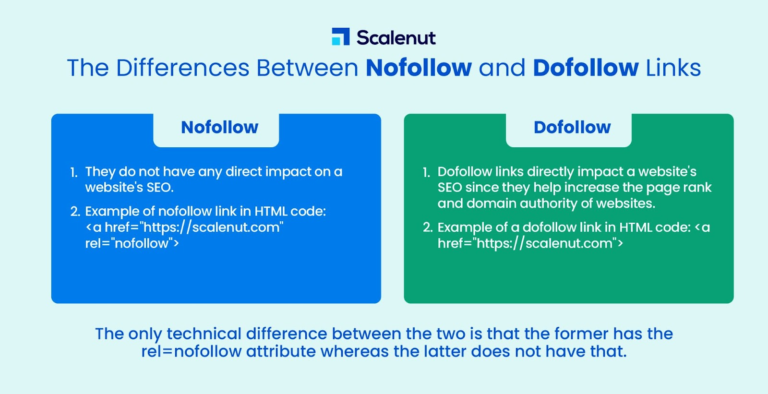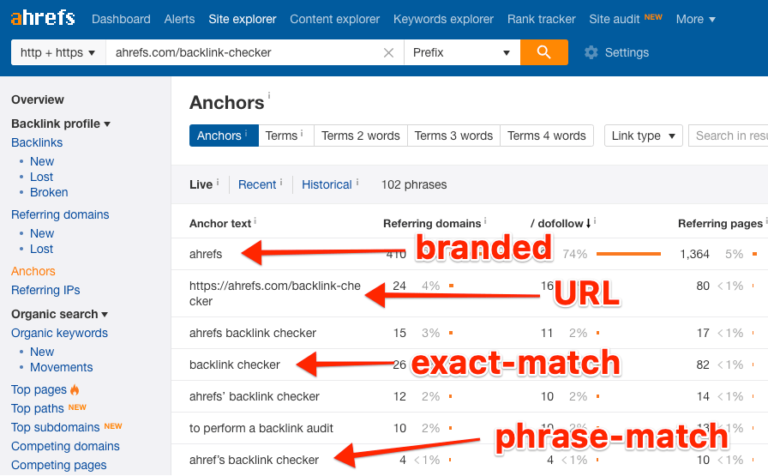How Does Link Building Help to Boost E-Commerce Business?
Share
Are you trying to grow your online Ecommerce store but need help determining where to begin? Well, let us tell you a secret: Link building! This tool is extremely powerful in digital commerce. It can help you in ways you cannot imagine.
It helps improve SEO results and grow a following for your products or services, increasing website exposure and bringing in more visitors. What else?
Let us show you how simple it is to use link building to boost your E-commerce success.
E-commerce Link Building – What We’ll Cover:
1. Understanding the basics of link building
2. Link Building in E-commerce – The perks
3. E-commerce link building – What do you need in 2023?
4. What makes quality links?
5. Are all links equal?
6. Building an E-commerce link-building campaign to boost E-commerce
7. Make link-building a journey for your E-commerce
Understanding the Basics of Link Building
Building links back to your E-commerce site is the main goal of E-commerce link building, which can dramatically improve your search engine results.
To increase their pages’ organic traffic and their website’s domain authority, businesses engaged in E-commerce, or electronic trade, create high-quality links pointing to their product pages. Backlinks are crucial for your E-commerce company because algorithms consider them a positive signal for a website or web page. So whether BigCommerce or Shopify powers your shop, link-building is crucial for all platforms.
When it comes to link-building for E-commerce companies, there are many different strategies available. Creating content that people will want to connect back to is a good start. Content categories most likely linked include visuals, infographics, lessons, guidelines, well-thought-out articles, and data.
The benefit of creating and sharing informational content is that it can be helpful to other people, such as bloggers, to connect back to your sources to support their points of view with examples for their audience, thereby enhancing your authority and organic traffic. Similarly, your fantastic content could serve as a springboard for reaching influencers and improving your social media profile. Until now, you have got a taste of why link building is crucial for your E-commerce business, but let’s go into more depth.
Link Building in E-commerce – The perks:
Unbelievably, link-building has perks beyond the links themselves! So let’s look at some ways link-building may assist your E-commerce site.
Building New Connections
Link building is frequently combined with outreach initiatives that target related websites, complementary companies, and blogs in your field. While the typical objective of this outreach is to gain a backlink, you can frequently establish long-lasting, mutually advantageous relationships with leaders and industry experts.
Boost Branding
Building strong backlinks can position your company as a thought leader or expert. In addition, creating excellent content that others in the sector can use as an example can significantly boost your brand’s visibility.
Increase Referral Traffic
Increased reference traffic likely to convert can result from a high-quality hyperlink. It means a backlink’s worth goes beyond SEO and can generate sales revenue. Whether the customer decides to purchase immediately, having your connection on a website relevant to your field can spread the word about you and your business.
E-commerce Link Building – What Do You Need in 2023?
We have already covered the benefits of getting links for your E-commerce store’s exposure and ability to place higher. So, now, what do you need to start? Here, you must remember that both internal links—which you include on one page of your website to a different page or resource & external links—links from other websites—can improve your E-commerce SEO and increase the efficiency of your digital marketing.
However, it’s also critical to emphasize that it can be challenging to get links pointing to our most crucial product sites or category pages, which are the ones you would most like to have links to regarding link building.
Hence, you need to find another way to build backlinks and raise the authority and trustworthiness of your website. Many companies can focus on link-building techniques, such as searching for unlinked mentions or broken link opportunities.
But since most people wouldn’t be driven to link back to a product website, this is less successful. Rather, making useful content about your products and creating links to these sites is better.
From there, you can add internal linking to your product pages and Dofollow backlinks to your product sites.
What Makes Quality Links?
So, what precisely distinguishes a high-quality link from a low-quality link? Let’s start with what makes a low-quality link.
There are many low-quality links on the internet, and they usually include:
1. Links coming from unrelated and malicious websites
2. Links with link text filled with keywords (or overly optimized text)
3. Links within blog comments
4. Paid links
On the other side, links with high quality tend to have the following qualities:
Relevancy
Backlinks are relevant to the website they are pointing to. Therefore, the backlink’s quality increases with relevance. Because it informs Google of the purpose of your website and directs visitors there, link relevance is essential.
Authority
The most difficult sites to get links from are authoritative websites with in-depth articles authored by experts in the field. However, you can acquire natural links on trustworthy websites without trying if you can show that you are an authority in your field.
Naturality
“Natural” is another word for “organic,” meaning a link that emerged without promotion or pay. A natural link is typically journalistic and is added by the author as a helpful resource for their readers using anchor text that needs to be keyword-rich. It is the link that you should get.
Professionalism
Which links originate from reputable websites and which are spam is fairly clear. For instance, you want to avoid a link to your E-commerce site coming from a site that discusses payday loans, gaming, and other dubious content. The same applies to URLs with multiple ads or links to other websites.
Are All Links Equal?
You need a powerful backlink profile if you want to be discovered online. The concern? Not all links are created equally. For example, links from authoritative, industry-related websites are far more valuable than unrelated websites.
Your website may suffer if it includes links to fraudulent sites. So, which links should you go for?
Reciprocal links
A reciprocal link merely refers to a trade of backlinks between two websites. So, for example, we need a link from a company connected to yours rather than a straight competitor. When done properly, reciprocal linking, or trading connections, improves rankings and reduces the chance that your website will be penalized.
Dofollow Vs. Nofollow Backlinks
Backlinks that are Dofollow are the most important. If the website owners keep the HTML encircling the connection, the link will always be a Dofollow.
For example, a Dofollow link looks like this-
<a href=”example.com”>anchor text here</a>
On the other hand, adding a rel=”nofollow” attribute to any link makes it a no-follow one.

Image Source: Scalenut
Dofollow links let Google know that the website connecting to your domain has confidence, which can boost your rankings. On the other hand, Google is informed by no-follow links that the link should not be considered valuable.
So while no-follow links still direct users from Website A to Website B, they need to do something to improve Website B’s search engine results.
Vendor links
An E-commerce company has a lot of work elements, including capital handling, logistics, marketing, sales, and other activities. It means that E-commerce businesses can use their working connections with other businesses to gain contacts while also helping them operate more efficiently.
Building Link Building Campaign to Boost Conversions
Creating links to your E-commerce site from any website that will accept them is not something you can do at random. If you do, you risk having your site penalized, which is a difficult hurdle to get past after years of using a bad SEO approach.
You need first to understand your website’s current state and the options open to developing a thorough link-building strategy.
For that, you should follow a few basic steps.
Choose Link Origin
The website on which you link is known as the link origin. The target is the specific page a link leads to on your website & it could be a blog, a product page, or your homepage. You want your origin and target sites to complement your sales funnel and cover the same ground for the most impact.
Consider the case where your online shop offers garden awnings. Here, getting a link from a website targeted to homeowners is wise because visitors are likely interested in what you offer. Users on gaming sites, on the other hand, most likely aren’t.
Decide on Anchor Text:
Next, choose your anchor text or the text you will link. When it comes to anchors, you have many options, but for the sake of SEO for store websites, you should use variety.

Image Source: Ahref
You can use various kinds of anchor text, including:
1. Branded links – It has your company’s name in the link text.
2. Exact match – Anchors with an exact fit to the keywords you use to optimize your sites.
3. Partial match anchors – Those that only partly match the main term of the target page.
4. CTAs – Anchors that attempt to persuade users to take action.
Prioritize Follow Links
Follow links instruct Google’s web crawlers to follow links on websites. They are useful if you want to be discovered. Effective SEO for E-commerce sites aims to create as many connections as followable as feasible.
Even so, it’s not the end of the world if other websites connect to you using the no-follow feature. It won’t hurt you because many popular websites, like Quora, YouTube, and Wikipedia, designate their external links with “rel=nofollow.”
Create Link-worthy Content
A great way to increase links to your website is by creating informative and engaging content for prospective customers. People will share good content on subjects connected to your offer, generating organic backlinks.
Content that meets these criteria will be avidly viewed and linked to by your target audience. A well-written text might receive links quickly. And you don’t have to pay for anything!
Answer Questions:
If you still need to, add a FAQ part to your website. Second, respond to user queries on other platforms. Additionally, attempt to include a link to your website or products.
Likewise, short responses appear in Google search results for pertinent and important questions. Once more, this is very beneficial for SEO promotion.
Build a Professional Network:
Both individuals and companies require a network of trustworthy partners for continued success. Your business network can help your capacity to establish links.
Expanding your business network is essential. Industry gatherings are an excellent place to begin. They provide an excellent setting for meeting people and groups that can help you long-term. Likewise, social media platforms like Linkedin are a fantastic way to start your business network if you prefer to keep everything online.
Run Donations or Collaborations:
Link-building strategies that include competitions, promos, contributions, and partnerships can be effective. Promos and incentives are fantastic ways to boost sales and increase brand awareness regarding marketing.
As website proprietors urge their audience to take advantage of tempting deals, promotions can also tangentially produce backlinks. Every day, collaborations and promotions are conducted on E-commerce platforms.
Although these marketing strategies are frequently connected to product releases, they can also aid in boosting the web rating of your site due to the massive amount of backlinks they will create.
Find Broken Links:
Building broken links is a tried-and-true SEO tactic that takes as much time as it is worth. Broken link building involves creating backlinks by swapping any damaged links on another website with ones that lead to yours.
Online retailers can use free link-building tools to identify broken connections on web pages in their industry. Additionally, you can look for reference sites that offer worthwhile details and content relevant to your specialty and are certain to be abundant in external links.
Find other websites or web pages that connect to the damaged link after you have located the first one.
Set up Affiliate Programs:
Affiliates are a great E-commerce link-building opportunity in the age of influencers. Creating an affiliate program creates connections promoting your products.
Affiliate links, typically labeled as paid links or “NoFollow,” are generally considered less valuable. Still, they generate targeted traffic, increase total sales, and facilitate a small boost in domain authority.
Make Link building a Journey for Your E-commerce
Link building is crucial to an E-commerce business. You can raise your site’s search rating and boost revenue from organic searches by getting high-quality backlinks.
There are multiple free methods for building links to your websites. For instance, posting guest articles on authoritative websites in your field can help you build quality links.
Alternatively, you can use your professional network or conduct competitor research to identify backlink possibilities. Remember affiliate marketing & offering promos and donations!
Discover the mix of strategies that yields the best results for the bare minimum of capital, adhere to it, and witness your organic online presence rise!
Want to discover more about link building strategies and SEO tactics?
Book for a free consultation here and talk to an expert today!
